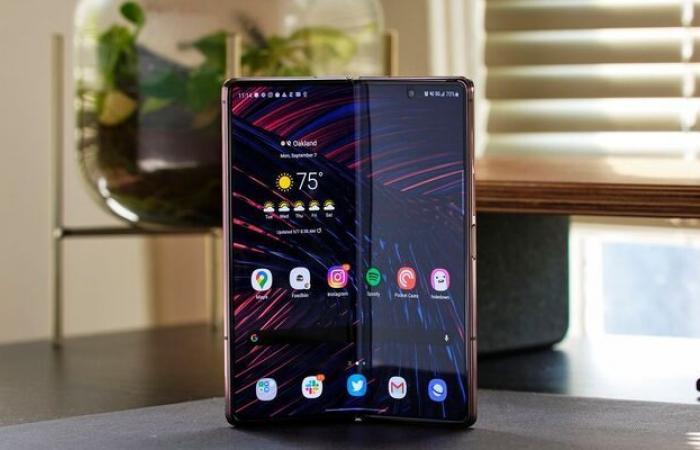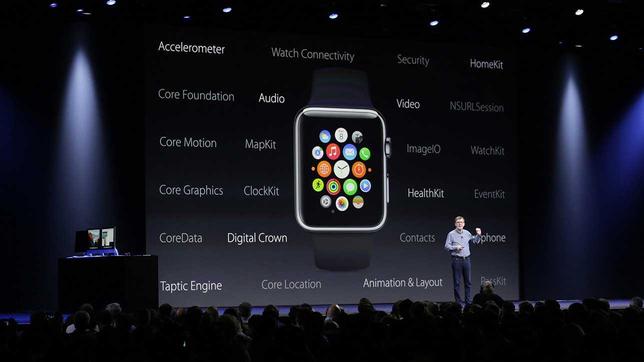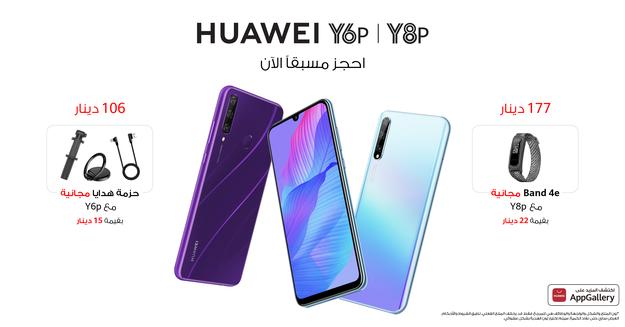The Hunger for Intimacy: When we interact with our phones more than our loved ones
A Decrease font size.A Reset font size.A Increase font size.
Michel Drouin - (The Guardian) 01/31/2022
Translation: Aladdin Abu Zina
It's my biggest distraction from my work, family, and friends—and yet I can't give up, even when my own research says I should.
* *Like most people, I want intimacy in my life.
But as a developmental psychologist, I consider intimacy in life a basic human need. Feelings, hugs, intellectual conversations and sex - these intimate moments are often the touchstone of a rich human experience.
Yet millions of people around the world experience isolation and loneliness, and tragically lack the diverse and meaningful social experiences that help support their emotional and physical health.
Teens spend most of their waking hours online, avoiding in-person gatherings in favor of online chatting, gaming, and watching Netflix.
And even those of us with socially rich networks sometimes crave flashes of intimacy, like hugs from friends and reunions with loved ones, amid the stagnation of our daily lives.
As modern life has become more and more distant due to technological innovation, our chances of experiencing deep and intimate moments have diminished.
The pandemic has only exacerbated this trend, banning or impeding many types of friendly and professional touch, and sending many of us deeper into our virtual worlds.
This left many of us starving. We have entered an era of famine to intimacy.
How affected you are depends in part on your objective experience, and depends mostly on your perspective.
Which combination of the following would describe you in your last two years:
- close, connected, lovable, cuddly and full, mother;
- Spaced, separated, lonely, exhausted and empty? If you choose the second group, you are not alone. Although the pandemic may intensify our sense of social deprivation, we are already in this cycle, staring at our phones as if they were the answer to our problems. Ironically, it might as well be.
* *As I was writing the words you just read, I checked my Facebook, Instagram, Twitter and LinkedIn accounts several times. Why?
Put simply, I, and the 53 per cent of adults around the world who use social media, must believe that using these platforms is worth the cost. If I put it not so simple, my relationship with social media is…complicated .
My declaration of my relationship status on social media is bold: I'm actually in a relationship with my phone.
With its lights, sounds, and vibrations, my phone gives me attention-grabbing displays, and I respond. Much like the way I respond to others in my life who make these offers (for example, my husband and children), I turn to my phone, pay attention to it and seek to resolve the issue that has prompted its alarm.
My phone is probably the most demanding entity in my world.
I have taught my students that responsiveness is a critical component of the parenting experience, and one of the most important things you can do as a parent is nurture and hump a child.
And so, by responding to the demands of my phone, I take care of it, too. However, it was not only the response that strengthened our relationship.
I carefully wipe his screen to remove smudges (social grooming); I carry it with me everywhere I go, either in my bag or in my hand or pocket (skin-screen tie). And I get nervous if I can't find it (separation anxiety). We're actually related, and I'm in love with him.
And this relationship did not go unnoticed by others in astrological. Together with family scientist Brandon McDaniel, I have been exploring the ways in which technology interferes with bilateral relationships through small daily interruptions in our interactions, termed “technoference,” or “technical interference” (1).
Since 2016, McDaniel and I, along with other researchers around the world, have found some consistent trends.
Specifically, people sometimes choose to interact with their phones in preference to other humans in their lives, and this can cause conflict and jealousy in marital, family, and friend relationships.
Conversely, this conflict and jealousy are associated with lower levels of relationship satisfaction, as well as detrimental to intimacy.
Unfortunately, this "technical intrusion" affects some of us almost every day.
In our 2019 study on the topic, McDaniel and I employed a diary study in which we asked couples in romantic relationships to map the “technical intervention” they experienced and their emotional responses each day for 14 days.
The results were staggering: Most couples (72 percent) reported having a "technical intervention" in their interactions with their partner over the entire two-week period.
Importantly, on the days when participants reported more “technical intervention,” they also reported more conflict about technology, less positive face-to-face interactions with their partners, and more negativity regarding their moods and feelings about their relationships.
Why might we feel so rejected when a partner or friend chooses to interact with the phone instead of us? According to the theory of symbolic interactionism, our interactions with others are linked by messages.

These messages help us define our role in that person's life.
And when someone chooses to pay attention to their phone instead of us, especially when we make efforts to engage them, it sends a code indicating that the phone is more important than us.
Even if this is just a temporary experience, it can feel like rejection, registering itself as a cost to the relationship.
* *Our decision to remain in a relationship includes an ongoing evaluation of the costs and benefits of that relationship.
Essentially, we keep a stock of the pros and cons in our partners - and to maintain investment and commitment, a balance must be struck.
In my relationship with my phone, the scale always tilts in my favour. And, of course, there are costs: It's my biggest distraction from my work, my family, and my friends.
No matter where I am, when an email or text comes up, I feel compelled to check it out.
I also fall into the trap of a “rabbit hole” or discursive inquiry that begins with a simple article on Fyodor Dostoevsky’s conception of love, and ends two hours later, after I have read about the definition of love by twenty different philosophers.
Thanks to the documentary The Social Dilemma and other recent commentary on the tech industry, I now understand that these drives are rooted in purposeful design.
Although I understand why I fall prey, I keep identifying myself as prey, and this makes me unsatisfied.
From a larger societal perspective, the use of phones and technology may also cause dissatisfaction. In the early 2000s, there was a lot of media interest in the research of American psychologist Jean Twenge and her colleagues.
Their studies have shown rising rates of depression and anxiety, which respond to increased rates of technology use among teens and young adults in the United States over the past decade.
The thesis goes something like this: Technology helps us form relationships, sure. However, everyone is now sitting in their bedrooms, prone to their phones and computers, and by communicating with others online, they are missing out on the face-to-face interactions that help keep us happy and socially connected.
Even worse, our preoccupation with the internet and social media leaves us feeling stressed, lonely, and depressed.
Gaining social capital helps us feel good about ourselves in the way: “I was able to win this friend/connection, so I should be good.”
Read more in translations:
Recent studies of American adolescents have shown that the more social capital you have online, the more likely you are to become stressed when exposed to online risk (eg, information breaches and exposure to explicit content). However, this may be the phenomenon of “putting all eggs in one basket”; Where social capital distributed across and offline contexts can provide a more protective effect.
* *
Through our social networks, we collect information about ourselves. How much do others love us? Do others care what we say? How does our life compare to the lives of others? Suddenly we are like guards at the Panopticon Center (2).
We, as humans, spend a lot of time thinking about what other people think.
And while this shouldn't be a controversial proposition, I'm sure some of you are telling yourself, "No, I don't," or "I don't care what other people think."
This is understandable. Any opposition you feel to this statement may come from well-meaning counselors, who, in an effort to distance you from self-criticism and anxiety arising from other people's evaluations, have assured you that what others think of you does not matter.
It's perfectly normal to think (and care) about what other people think.
It is a sign that you are in tune with your social surroundings.
According to the “social brain hypothesis” (3), these types of complex social interactions are the reason we have larger brains than other vertebrates. More than that, it is a sign that you need (and care about) people and their feelings.
You are connected, and connecting with others can help us weather all kinds of storms.
That's why I would never suggest you give up your smartphone or do phone detox. Instead, I accept your connection to your phone for what it is: you cling to a lifeline that connects you to important people in your world.
For some, like many of the young people I teach and research about, the form of intimacy is now shifting so dramatically, that the drops they get through texting and social media are enough to maintain the connection.
For others, like me, in-person interactions, where we are immersed in touch, laughter, and nonverbal cues, may be what we desperately need.
But, for all of us, we need to strike a balance, letting our everyday technology drip and facilitating moments of deeper personal connection.
Whether we're texting our friends or meeting our loved ones over dinner, our desire to connect and our weaknesses once we get there are the ingredients for living an intimate life.
*This article is an edited excerpt from Michele Drouin's book, Losing Touch: How to Survive the Famine of Intimacy, by M. Which. T". It was published under the title: The age of intimacy famine: when we interact with our phones rather than our loved ones.
(1) Technoference refers to interruptions in interpersonal communication due to interest in personal technological devices. In other words, it's the thing that happens when you look at your phone or tablet and don't hear the question your child, friend, mother or partner asked you.
McDaniel coined the term from “techon” from “technology” and “ference” from “interference,” which combines things like checking phones for text messages and notifications during meals, playtime, or other routine activities—and found that even Lower amounts are associated with higher levels of behavioral problems in children who practice it.
(2) A panopticon, meaning “watching all,” is a type of prison designed by the English philosopher and social theorist Jeremy Bentham in the year 1785.
The design concept is to allow a single observer to monitor all prisoners without the prisoners being able to tell if they are being watched.
(3) social brain hypotesis: a theory proposed by Professor Robin Dunbar, which says that the relatively large size of the brain in humans is due to their development in large and complex social groups.
TagsRelationships Aladdin Abu Zina









